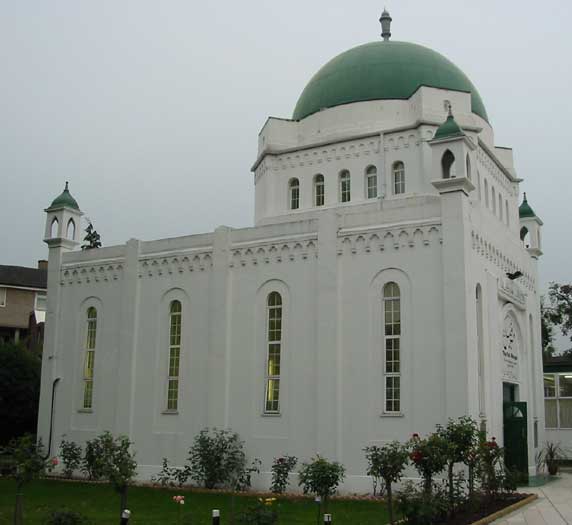|
In addition to the regular flow of MPs, Mayors, Councillors, scholars
and students, The London Mosque has been host to a number of distinguished
visitors from far and wide. The founder of Pakistan, Muhammad Ali Jinnah, visited the mosque on several
occasions and made his famous speech in its grounds when he decided to
return to India to represent the Muslims in the sub-continent.
The Crown Prince of Saudi Arabia, Shahzada Faisal Bin Adbul - Aziz also
visited the mosque in 1935 as did his father, King Saud of Saudi Arabia.
Sir Chaudhry Muhammad Zafrullah Khan - the first Foreign Minister of
Pakistan, a President of the International Count of Justice and President
of the UN General Assembly - lived at the premises for many years.
The third Khalifa also visited The London Mosque many times and it has
also been blessed both by the presence of the fourth Khalifa as well as the present Khalifa, Hadhrat Mirza Masroor Ahmad.
As the range and frequency of activities in the mosque progressively
increased there was need for more space. This increase saw the construction
of the multi-purpose Mahmood Hall, as well as the Nusrat Hall, in the
grounds of the mosque. From Sunday school classes and school visits, to
Question and Answer sessions and international meetings, The London Mosque
has been and continues to be a hive of activity promoting education and
religious awareness. Since1926 The London Mosque has had eleven Imams;
the current Maulana Ataul Mujeed Rashed who has been serving as its Imam
since 1983.
Since 1994 the Mosque has also been involved with the world's first global
Muslim television station, Muslim Television Ahmadiyya International.
MTA broadcasts 24 hours a day and is run entirely by volunteers.
With the expansion of The Ahmadiyya Muslim Community, the capacity of
The London Mosque has become insufficient and further premises in Surrey
and Morden have been acquired. However, the historic significance and
role of The London Mosque continues to ensure its special and indeed unique
position for both the global Ahmadiyya Muslim Community as well as Britain.

| 